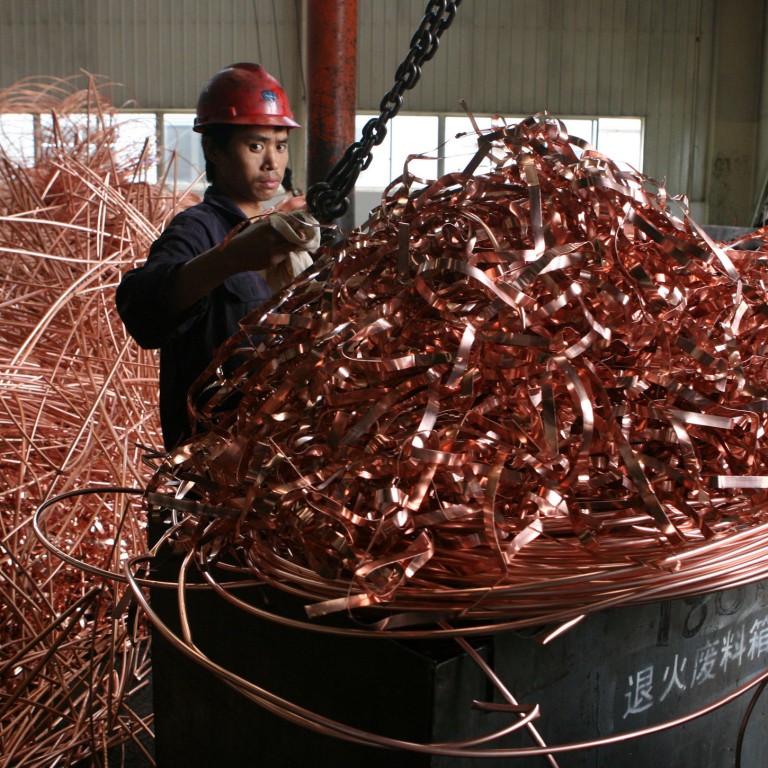
Challenges ahead as Hong Kong unveils plans for commodities trading
Hong Kong Exchanges and Clearing's plan to introduce the Hong Kong version of the London Metal Exchange platform this year is a baby step to kick off the local commodities market, but brokers and observers warned there will be challenges in developing the new market.
Hong Kong Exchanges and Clearing's plan to introduce the Hong Kong version of the London Metal Exchange platform this year is a baby step to kick off the local commodities market, but brokers and observers warned there will be challenges in developing the new market.
"HKEx spent a lot of money buying the LME in 2012 but we have yet to see how the deal will help promote the local commodities market. It is good to see HKEx is finally doing something to promote commodities trading in Hong Kong," said Christopher Cheung Wah-fung, a legislator for the financial services sector.
"HKEx is expected to face a lot of challenges in promoting this new market as many local brokers and investors do not have sufficient knowledge about metal trading. The bourse will need to provide a lot of education and promotion in the following months before the launch."
As long as they can make money from the trading, they will participate
The exchange's chief executive Charles Li Xiaojia said last week that it would introduce a Hong Kong platform for the LME, the world's biggest physical metals exchange and the global benchmark for setting prices of industrial metals such as copper and aluminium.
The bourse has not yet announced what products will be traded on the platform, but Li said they would be settled by cash and all local futures brokers could trade on it with no need to apply for membership of the LME. It will also negotiate with exchanges on the mainland for possible cross-selling of each other's products.
HKEx is struggling to show its shareholders that the LME deal is value for money after reporting a disappointing 11 per cent profit rise last year, lower than the market estimate of 16 per cent growth, partly as a result of the costs related to the LME acquisition.
Jeffrey Chan Lap-tak, chairman of the Hong Kong Securities Association, said it was a wise move that HKEx now planned to allow all 180 futures brokers in the city to trade on the LME instead of requiring them to apply for membership.
"Hong Kong would be an ideal place to attract Asian investors to trade commodity products here," Chan said.
Joseph Tong Tang, executive director of Sun Hung Kai Financial, said his company would trade in the new LME platform in Hong Kong.
"Some of our investors have traded in the LME market in London. They may be interested to trade in Hong Kong as the time zone is different from London's," Tong said. "However, history has shown that Hong Kong investors were not very enthusiastic about commodities trading."
The Hong Kong Futures Exchange, now part of HKEx, provided trading in a number of commodities from cotton, sugar to soya bean during the 1980s, but it scrapped them all later due to thin trading. HKEx now has gold futures trading but turnover is nil.
Tianjin's Bohai Commodity Exchange introduced its online platform to Hong Kong companies in December to tap international investors.
At the Hong Kong launch of the platform, the mainland bourse's chairman Yan Dongsheng told the that it had no co-operation plan with HKEx.
Gary Cheung Wai-kwok, the chief executive of Tung Shing Futures (Brokers), said that even if the prospects did not look positive, the broker still believed the exchange should introduce more new products.
"Investors like to have more new products to trade. They may not able to learn all about commodities trading overnight, but as long as they can make money from the trading, they will participate in the market," he said.

